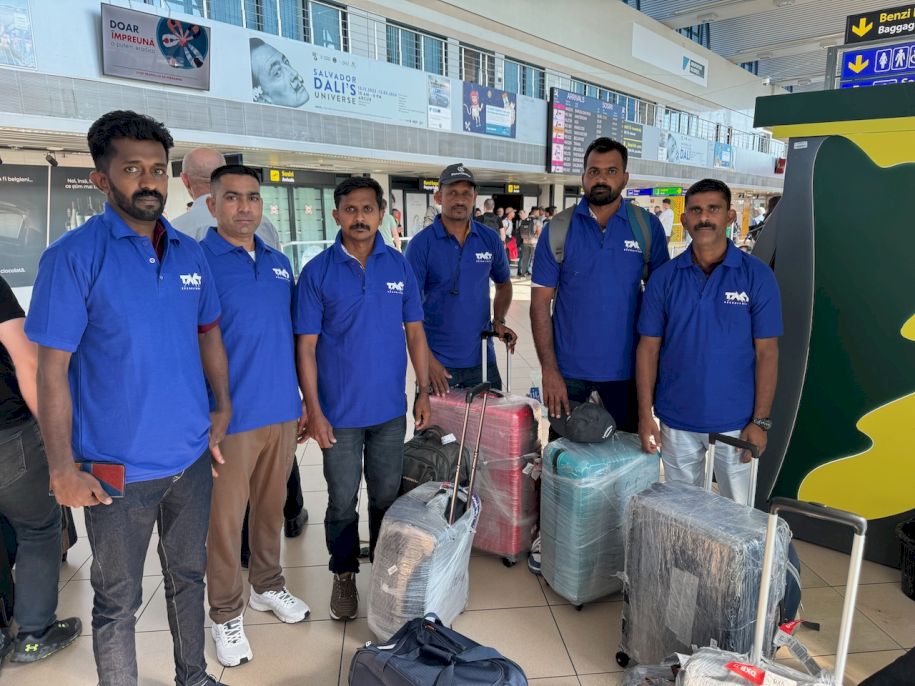What wages can foreign workers earn in Romania?

The increased quota of 100,000 people reflects the increased need for foreign labour in vital sectors of the economy such as retail, construction, hospitality (hotels, restaurants and cafés), services, construction, transport, logistics. They are mainly looking for people for entry-level positions requiring up to two years’ experience, but also for experienced, skilled workers.
Analysis of job vacancies in 2023 indicates high demand in these areas. For example, between January and November 2023, almost 350,000 jobs were posted, including 86,000 in retail, 51,000 in services, 40,000 in the food industry, 37,000 in tourism, 32,000 in transport and logistics and 28,000 in construction.
Maintaining a quota of 100,000 foreign workers suggests an effort to support economic growth by adding labour in key sectors where demand exceeds local labour supply.
Wages of foreign workers the same as those of Romanian workers
In Romania, foreign workers enjoy rights equivalent to those of Romanian citizens, including the minimum wage for foreign workers. Net salaries for entry-level positions in different sectors vary between 2,600 and 3,600 lei.
For example, employees in retail earn around 3,000 lei, those in construction can reach 3,600 lei, in the food industry and HORECA the salary is 3,000 lei, in transport and distribution around 3,100 lei, and in tourism the salary drops to 2,600 lei.
For workers from outside Europe, Romanian employers are obliged to provide accommodation and a wage at least equal to the minimum wage. Although the recruitment process for these workers is more complex and costly, many employers adopt this strategy to compensate for the shortage of local labour.
In 2022 the number of work permits granted to non-Europeans peaked, with over 96,000 work contracts registered, compared to 50,000 in 2021. This trend underlines the increasing dependence of the Romanian labour market on the input of foreign workers, in an economic context where demand for labour exceeds local supply.
Hiring foreign workers with Takt Recruitment – step-by-step procedure
With Takt Recruitment the process of hiring foreign workers is efficient and well structured, divided into several essential steps. Initially, the details of the collaboration are established in a discussion with the client, where the specific requirements, the required experience of the candidates and the compensation package are clarified, which may include minimum wage for foreign workers, accommodation, meals or meal vouchers and other benefits.
Takt team takes responsibility for identifying and selecting suitable candidates, providing the client with a preliminary list of applicants who meet the established criteria. The next step involves a videoconference interview, which consists of a presentation and a practical phase, where candidates’ skills are tested according to the client’s specifications.
The labour recruitment procedure in Asia starts with obtaining the work permit, a document issued by the General Inspectorate for Immigration, which is required for each candidate and involves a fee to the budget of €100 per person. Takt team is also in charge of preparing the work visa application, which is submitted to the consular section of the Romanian Embassy in the candidate’s country of origin.
Once the visa is obtained, the travel to Romania is planned and purchased. Finally, Takt offers assistance in the process of obtaining the residence permit, for which additional fees to the budget are required, amounting to 259 lei and 120 euro.
What are the costs of hiring foreign workers from Asia?
According to recent estimates, the country’s population is expected to fall to 16 million by 2050, a demographic decline accentuated by the annual migration of some 200,000 Romanians who choose to seek employment opportunities abroad. Only half of these migrants return to the country in the same year, creating a shortage in the local labour force.
To counter this trend, Romanian companies are increasingly turning to attracting workers from non-EU countries such as India, Nepal and Sri Lanka. Romania’s attractiveness to these workers lies in the competitive wages it offers compared with conditions in their home countries.
Bringing in these workers, whether skilled or unskilled, is proving to be more cost-effective than initially thought, given the moderate costs of recruitment and relocation compared to other European countries.
Romanian companies use the services of companies specialising in recruiting labour in Romania to fill the gap left by the local workforce. These workers bring with them not only skills and experience, but also a high level of professionalism and dedication, often settling in for the long term (at least two years), which ensures the operational stability needed by any business. They are fluent in English, adapt quickly to new conditions and are valued for their physical and moral resilience in the face of challenges.
The recruitment process involves several stages, from the initial assessment of candidates to their actual integration into the company. The costs associated with recruitment include not only the minimum wage for foreign workers, but also accommodation, meal vouchers and recruitment agency fees, which vary according to the occupational category of the workers and the number of workers employed.
